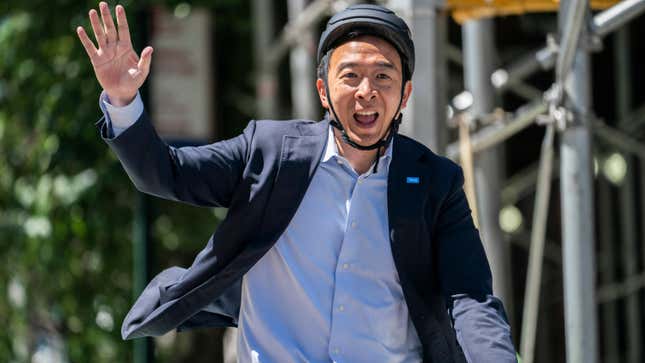In Andrew Yang's World, It's the Mentally Ill Versus Everybody Else
During a debate, the New York City mayoral candidate said, "Mentally ill people have rights, but you know who else has rights? We do!"
Politics

Andrew Yang has stepped in it once again.
The former Democratic presidential candidate and current New York City mayoral race contender hit the debate stage Wednesday with seven other hopefuls, discussing New York’s biggest problems. According to Yang, one of the biggest problems are the mentally ill New Yorkers walking around unmedicated, infringing upon the rights of everyone else.
-

-

-

-

-

-

-

-

-

-

-

-

-

-

-

-

-

-

-

-

-

-

-

-

-

-

-

-

-

-

-

-

-

-

-

-

-

-

-

-








































